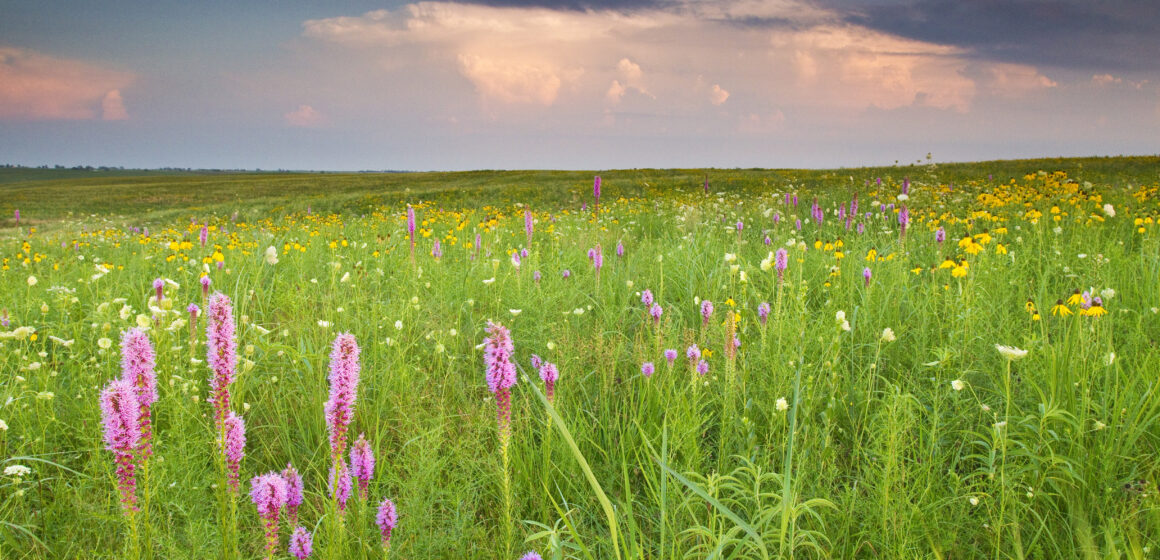Drake University’s Jay N. Darling Institute partners with Iowa and Missouri organizations to conserve and restore native grasslands through collaborative public and private land management strategies. Drake students will help lead this initiative through hands-on internships with the Jay N. Darling Institute Student Conservation Corps program.
A unique experiential learning opportunity is taking root in the native grasslands of Iowa and Missouri for Drake University students interested in conservation work. The experience—offered through the Jay N. Darling Institute’s Student Conservation Corps program—is positively shaping the career paths of students while pursuing meaningful sustainability initiatives.
DarlingCorps: Growing the Talent of Tomorrow’s Conservationists
Located on Drake’s campus in Des Moines, Iowa, and named after a famed journalist and conservation activist, the Jay N. Darling Institute perpetuates Darling’s legacy by inspiring others to make the world a better place. The Institute models excellence and elevates the University’s ability to create sustainable change through collaboration and action.
Currently in its second year, the Darling Institute’s Student Conservation Corps program—also known as DarlingCorps—is a new experiential learning program that engages students in participating in rural development projects. Students are recruited from high school and awarded a donor funded scholarship to attend Drake and eventually participate in a rural service project during their undergraduate degree. The first DarlingCorps cohort started in Fall 2022 and kicked off their service projects this year, with students engaging in both regional and international opportunities.
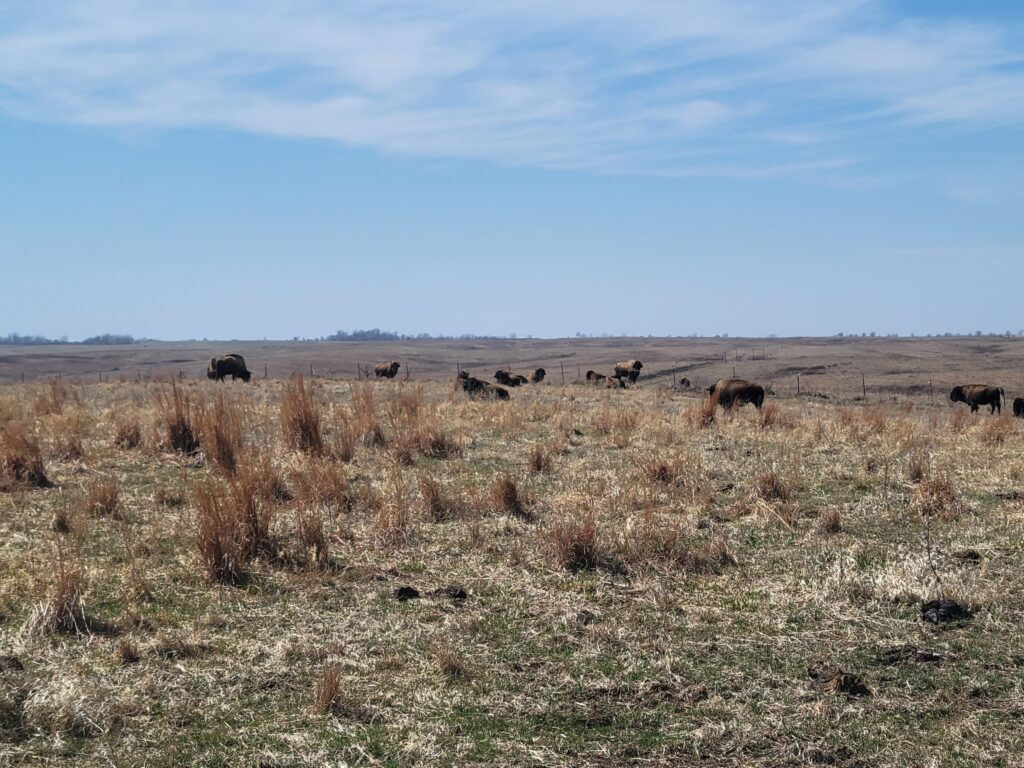
Collaborative Conservation for Tallgrass Prairie Ecosystem
One of the most recent projects that DarlingCorps students will have the opportunity to participate in is a collaborative conservation project aimed at restoring Iowa and Missouri grasslands. This project, titled ‘Conserving, enhancing, and connecting core areas in the Tallgrass Prairie Ecosystem through regional coordination: Changing the trajectory of Midwest’s critically imperiled native grasslands,’ was recently awarded a $4.77 million grant through the 2023 America the Beautiful Grant Challenge through the National Fish and Wildlife Foundation.
For this project, Iowa and Missouri environmental organizations, including the Missouri Department of Conservation, the Iowa Department of Natural Resources, The Nature Conservancy, the Jay N. Darling Institute, Pheasants Forever & Quail Forever, and the Missouri Prairie Foundation, are partnering together to conserve, restore, and reconnect the native grasslands through collaborative public and private land management strategies.
“This project is about restoring the landscape between southern Iowa and northern Missouri that used to be 99.5% tall grass prairie and naturally grazed by bison before it was converted to pastures for livestock,” said Keith Summerville, Paul and Claudia Schickler Executive Director of the Jay N. Darling Institute. “European settlers and colonization converted this land almost entirely to cool-season species that can’t handle drought, which is increasingly becoming an issue for this area. The goal of this grant is to take what was converted from habitat to pastures and turn it back into native prairie land.”
The project will take place over four years, starting in 2024 and ending in 2027. In that time, the collaboration is looking to restore and manage an estimated 7,000 acres of remnant and reconstructed prairie and savanna annually (28,000 acres total). The focus on restoring private land makes it especially unique. Historically, there has been limited funding for restoration projects on private land even though private land makes up a significant portion of what was formerly native grasslands.
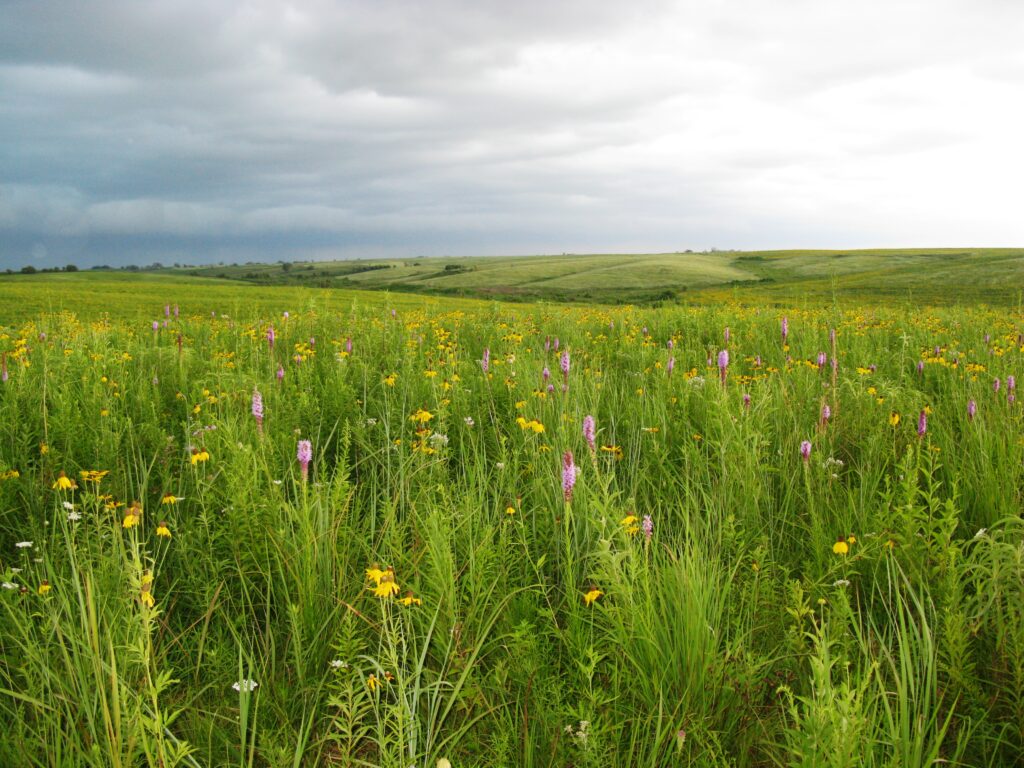
Students in Action: DarlingCorps’ Role in Grassland Conservation
Part of the project’s funding will go toward supporting the participation of two to four DarlingCorps students annually who will live on-site at a ranch in northern Missouri, where they will learn and assist with native grasslands management and work with private livestock producers to convert their pastures back to native prairie lands.
“This is a rare and exciting opportunity for students because they will get to play a firsthand role in changing the trajectory of the ecosystem in this area,” Summerville said. “They will be immersed in the work by getting to live on-site and to see what it’s like to be a conservation professional through hands-on involvement in the project.”
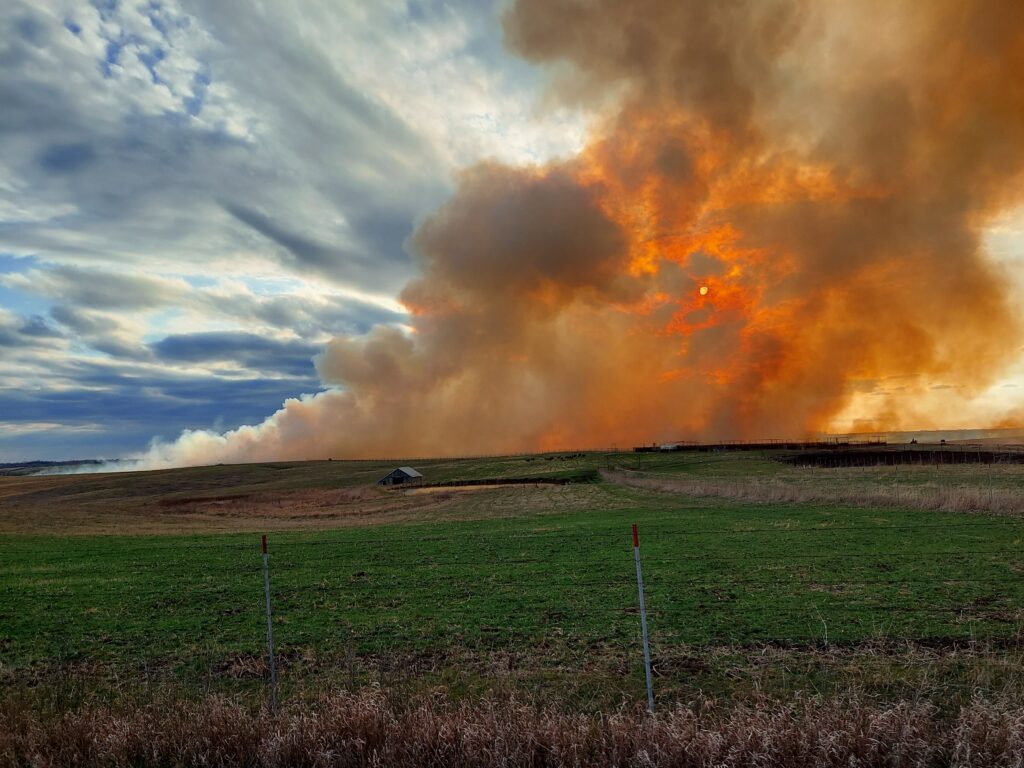
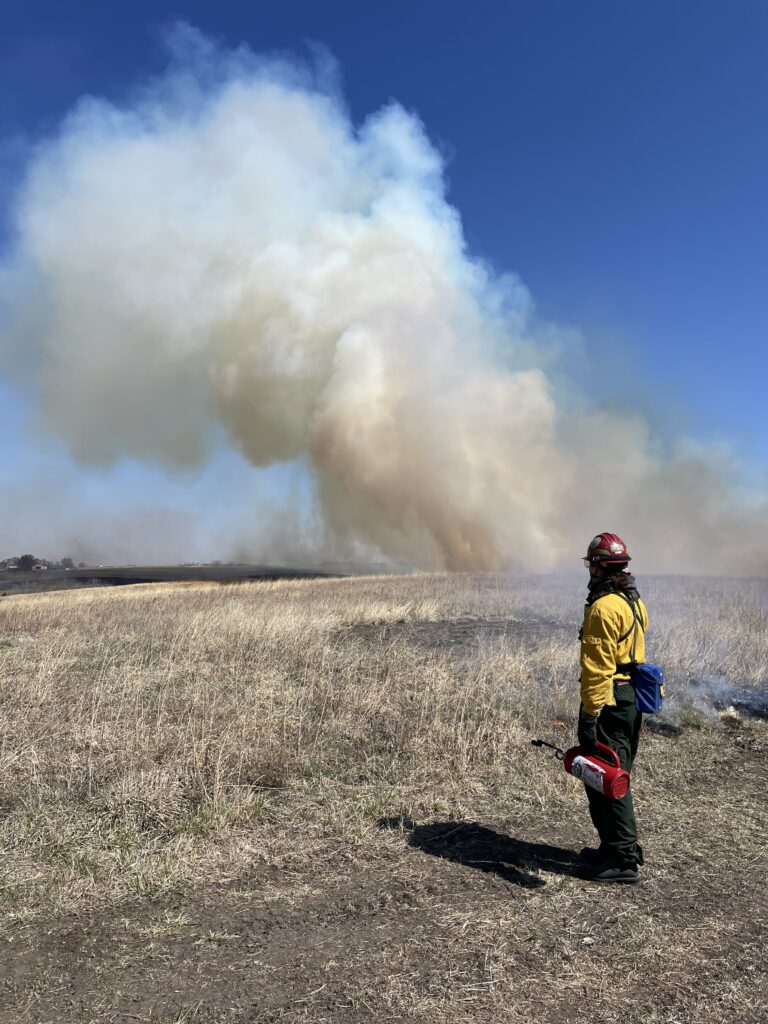
Students will learn how to restore and steward native grasslands by working with the participating organizations to collaborate with local Tribes, landowners, and other organizations to conserve, restore, and connect remnant prairies and savannas through prescribed fire, invasive control, easements, grazing, and more land management strategies in order to create wildlife habitat and restore an ecosystem that historically covered one-third of the Mississippi River Basin.
“I am beyond excited to complete conservation work on this scale in the coming months,” said Drake and DarlingCorps student Madelyn Christian. “Gaining hands-on restoration experience is an incredible opportunity, and I am sincerely looking forward to working towards the preservation of our prairies.”
Drake law students interested in agricultural law will also play a role in the project through the Darling Institute by assisting with exploring market-driven economic development for livestock producers in the Midwest.
“Drake agriculture law students will help livestock producers find new markets to sell sustainably raised beef. They will also work with producers in the pasture improvement program to identify locker space where they can engage in meat processing for prairie-fed beef,” Summerville said. “In addition to greatly impacting the restoration of grasslands, the work of our DarlingCorps and ag law students is also going to benefit the rural agricultural economy.”
Unmatched Experiences Now. Extraordinary Careers Later.
This special internship opportunity will help to set Drake environmental science students apart from their peers upon graduation by providing them with extensive field experience and skills training. For example, the students participating in the grasslands DarlingCorps program opportunity will have an unparalleled advantage over other internship candidates.
“Our environmental science program emphasizes providing our students with diverse, integrated educational opportunities and extensive field experience,” Summerville said. “Our direct-to-employment rate has been about 99% for graduating classes of 30 for the last four years. That’s because, when our students enter the workforce, they are entering with a high level of field experience. In my opinion, no other 19-year-old out there that’s going to have the level of degree of training as deep as our DarlingCorps students will have.”
Are you interested in supporting grassland conservation efforts and similar initiatives across the globe? Consider donating to the Jay N. Darling Institute to help provide Drake students with experiential education opportunities. Your support will improve access to quality health care and education, nutritious food, unimpaired natural resources, and ongoing economic and cultural opportunities for rural communities.


